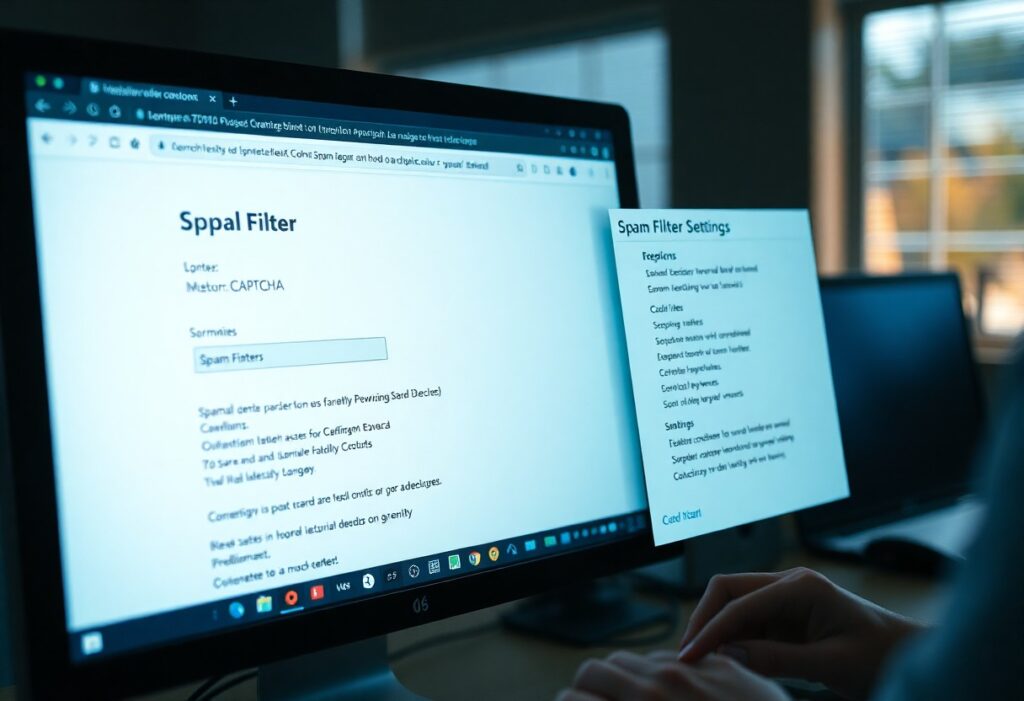Many website owners overlook the importance of SSL certificates when setting up their WordPress hosting. Understanding whether SSL is included with your hosting plan can directly impact your site’s security and credibility. An SSL certificate encrypts data transferred between your site and users, ensuring protection against valuable information theft. In this guide, you’ll discover how to determine if SSL is provided by your host and the benefits that come with it, helping you make informed decisions for your online presence.
Understanding SSL
SSL, or Secure Sockets Layer, serves as a foundational technology for securing communications on the internet. You establish an encrypted connection between your web server and users’ browsers, ensuring that sensitive data like passwords and credit card numbers remain confidential during transmission. As a result, SSL not only enhances user trust but also boosts search engine rankings, making it a vital aspect of website management.
What is SSL?
SSL is a security protocol that encrypts data exchanged between your website and its visitors. It utilizes cryptographic keys to create a secure link, allowing for the safe transfer of information. With SSL, data intercepted by malicious actors becomes unreadable, making it a vital tool for online security.
Importance of SSL in Web Security
Adopting SSL protects your website from various cyber threats, including data breaches and eavesdropping. It reassures users that their information is secure, which is vital for maintaining their trust. Websites without SSL not only face security risks but also potential penalties from search engines, affecting your visibility online.
The presence of SSL significantly influences user behavior and decision-making. Studies indicate that over 85% of consumers are less likely to engage with a website lacking SSL. This makes having SSL vital not just for security, but for boosting conversion rates and enhancing the overall reputation of your website. Without SSL, you expose your users and your brand to potential threats, ultimately undermining customer trust and loyalty.
WordPress Hosting Options
Various hosting options cater to different needs, especially when it comes to security features like SSL. Shared hosting, managed WordPress hosting, and VPS hosting each offer distinctive advantages, impacting how you secure your site. Depending on your choice of the hosting plan, you may find SSL certificates included or available for purchase, affecting your site’s overall security and performance.
Shared Hosting and SSL
With shared hosting, you will often find SSL certificates offered at low or no additional cost. While many reputable providers include a basic SSL certificate in their plans, the level of security might not match the needs of larger or more sensitive sites. Ensure you verify whether your chosen provider offers the level of SSL necessary for your website’s operations.
Managed WordPress Hosting and SSL
Managed WordPress hosting typically includes SSL certificates in the package. These hosting services often streamline the process of installing and managing SSL, ensuring your site remains secure with minimal configuration. This convenience aligns with the best practices for WordPress security and overall performance.
Managed WordPress hosting providers often integrate SSL certificates seamlessly into their services, offering solutions like <>Let’s Encrypt for free SSL or premium options with advanced features. By automating the renewal and installation process, you can focus on your content without worrying about security lapses. Many managed hosts also provide additional features, such as enhanced customer support and performance optimizations, that can further safeguard your website while providing a hassle-free experience.
Check if SSL is Included
Determining whether SSL is included in your WordPress hosting package is straightforward. Start by reviewing the hosting provider’s website or your existing plan details. Look for specific mentions of SSL support, often indicated as “free SSL” or “Let’s Encrypt.” In most cases, reputable hosts will clearly outline this feature, as it’s a standard expectation for modern web hosting solutions.
Reviewing Hosting Plans
Examine the details of each hosting plan you’re considering. Some may offer SSL as part of the basic package, while others might include it in higher tiers or as an add-on service. Make sure to compare features like the types of SSL certificates provided, as options such as wildcard or multi-domain can significantly influence your decision.
Contacting Customer Support
If SSL information isn’t readily available, reaching out to customer support is an effective method to clarify your hosting package. Most providers offer multiple channels, including live chat, email, and phone support, ensuring you can get your questions answered quickly.
Engaging with customer support allows you to inquire specifically about SSL and any additional costs associated with it. For example, you might discover that some hosts include automatic SSL installation, while others require manual setup. Additionally, you can ask about renewals and any potential support for migrating existing SSL certificates if you’re switching hosts. This direct line of communication ensures that your website’s security needs are met without any hidden complexities.
How to Install SSL on WordPress
Installing SSL on your WordPress site can enhance security and improve search engine rankings. The process generally involves using a plugin for ease or manually integrating the SSL certificate through your hosting provider. Whichever method you choose, it’s necessary to ensure that your entire website is served over HTTPS for maximum protection.
Using a Plugin
Opting for a plugin simplifies the SSL installation process significantly. Popular plugins like Really Simple SSL automatically handle the configuration for you. Once installed and activated, the plugin detects your SSL certificate and makes necessary changes to your website’s settings, ensuring a seamless transition to HTTPS.
Manual Installation Process
Installing SSL manually involves a few more steps but provides greater control. First, obtain an SSL certificate from your hosting provider or a third party. After you’ve received the certificate files, you’ll upload them to your server, typically via your hosting control panel. Finally, update your WordPress site’s settings to enforce HTTPS.
During the manual installation, focus on obtaining the correct certificate type—either a single domain certificate or a multi-domain certificate, depending on your needs. Upload the certificate files to the appropriate directory on your server, usually under the SSL tab in your hosting control panel. Additionally, ensure to update your WordPress URL settings to utilize HTTPS and implement redirects from HTTP to HTTPS to avoid broken links and enhance security. Lastly, consider running a search and replace to update any old URLs in your database, ensuring every aspect of your site is securely connected.
Tips for Maintaining SSL
To ensure your SSL certificate remains effective, implement these key practices:
- Regularly update your SSL certificates.
- Perform routine checks on your website’s security.
- Monitor your site for any mixed content issues.
- Educate yourself on the latest SSL developments.
The integrity of your website’s security relies on diligent maintenance.
Regularly Check SSL Status
Periodically checking your SSL status can help you identify potential issues before they escalate. Use online tools or your hosting provider’s dashboard to verify the validity of your certificate and ensure it hasn’t expired. Keeping track of renewal dates and site security alerts prevents unnecessary downtime and maintains the trust of your visitors.
Keep WordPress and Plugins Updated
Updating your WordPress version and plugins is necessary for maintaining SSL security. Each new release typically includes critical patches that address known vulnerabilities and enhance overall site security. Regularly checking for updates ensures your site is safeguarded against potential risks that could compromise data protection.
Neglecting to keep your WordPress and plugins up to date can expose your site to security vulnerabilities. For instance, outdated plugins are often targeted by attackers seeking to exploit weaknesses. When you regularly update your site, you not only enhance SSL security but also benefit from improved features, performance enhancements, and bug fixes, ensuring a smoother experience for your visitors. The proactive management of updates is fundamental to securing your site against cyber threats.
Factors Affecting SSL Availability
Several factors impact whether SSL is available with your WordPress hosting plan. You should consider the following aspects:
- Hosting provider policies
- Type of domain registration
- Pricing tiers of the hosting plan
- Customer support availability
This understanding helps ensure you choose a hosting solution that meets your security needs.
Hosting Provider Policies
Your hosting provider’s policies significantly influence SSL availability. Some providers automatically include SSL certificates with standard packages, while others may charge additional fees. Additionally, providers vary in terms of the types of SSL they offer, such as free Let’s Encrypt certificates or premium options that may come with advanced features. Knowing your provider’s policies allows you to make informed decisions on what best suits your requirements.
Type of Domain Registration
The type of domain registration you select can also affect SSL availability. Certain registrars may include SSL certificates in their packages, while others require separate purchases. Furthermore, different domain extensions (like .com or .org) may have distinct requirements regarding SSL. Choosing the right registrar ensures you get the necessary security for your site.
When considering domain registration, it’s vital to check if the registrar offers bundled services, including SSL certificates with your domain purchase. Some registrars promote these features as value-added services, potentially saving you money and effort in obtaining SSL separately. By opting for a provider that aligns domain registration with SSL availability, you can streamline your site’s security setup and avoid possible complications later on.
Final Words
Taking this into account, when selecting WordPress hosting, it’s necessary to verify whether SSL is included in your plan. Many providers now offer SSL certificates as part of their hosting packages, simplifying the process of securing your website. By ensuring you have SSL, you enhance the security of your site, gain trust from your visitors, and potentially improve your SEO rankings. Always confirm the hosting provider’s details to ensure you’re equipped with necessary security features for your online presence.
FAQ
Q: Is SSL included with all WordPress hosting plans?
A: Not all WordPress hosting plans include SSL by default. It’s necessary to check with your hosting provider to determine if SSL support is included in your specific plan.
Q: How can I get an SSL certificate for my WordPress site?
A: You can obtain an SSL certificate from your hosting provider, a third-party certificate authority, or use free options like Let’s Encrypt if your host supports it.
Q: What are the benefits of having SSL for my WordPress site?
A: SSL enhances the security of your site, protects user data, improves SEO rankings, and builds trust with visitors by displaying a secure connection.
Q: Do I need to install the SSL certificate myself?
A: Installation depends on your hosting provider. Some hosts offer automatic installation, while others may require manual installation via the hosting control panel.
Q: Will my website downtime occur after installing SSL?
A: Typically, there should be no downtime during the SSL installation process, especially if done through your hosting provider’s automated system.
Q: Does having an SSL certificate affect website speed?
A: Generally, the impact on website speed is minimal. Modern SSL/TLS protocols are optimized to ensure that the SSL connection is efficient.
Q: How do I check if my WordPress site has SSL enabled?
A: You can check for SSL by looking for ‘https://’ at the beginning of your site URL or by using online SSL checkers to verify the installation status.



